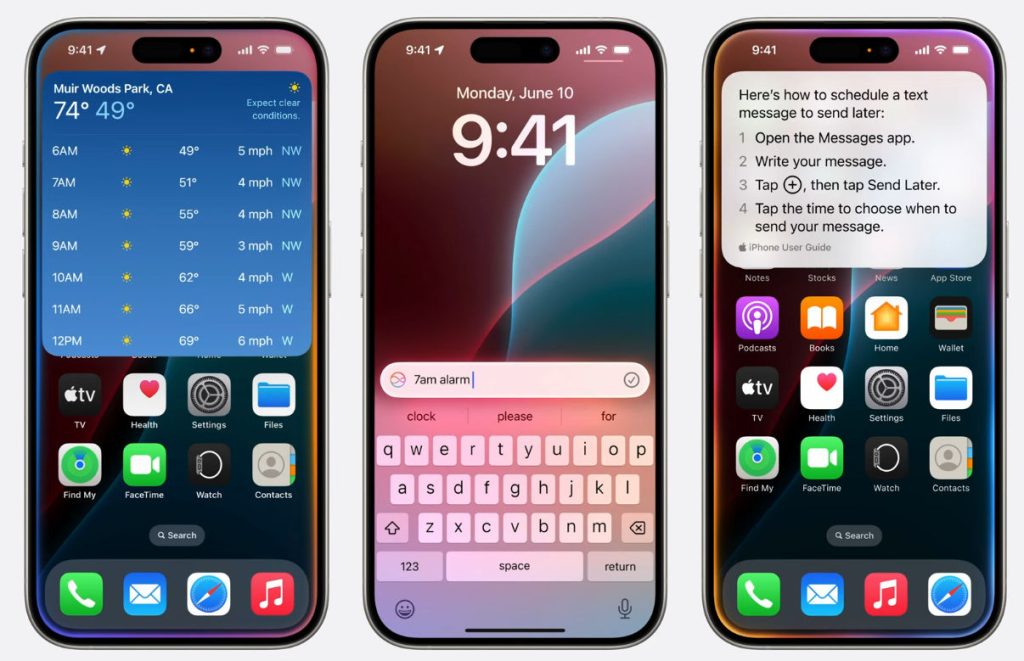
Apple’s delayed overhaul of Siri hides a bigger upcoming feature that could reshape how iPhone users interact with apps, reports Bloomberg’s Mark Gurman.
While public attention has focused on the postponed ability for Siri to pull personal information from messages, emails, and photos, the report says an upgraded “App Intents” system — enabling precise, voice-driven in-app control — could be the real breakthrough.
From Missed Promise to Potential Breakthrough
At WWDC 2024, Apple demonstrated Siri building travel itineraries from user content, a feature later pulled from a Bella Ramsey ad that sparked a false advertising lawsuit. That capability is now delayed, but the planned App Intents update could allow Siri to:
- Locate, edit, and send photos.
- Comment on social media posts.
- Add products to shopping carts.
- Log in to services — all by voice.
If reliable, this would mark the closest Apple has come to fulfilling Siri’s original “voice-first” vision from 15 years ago and would serve as the backbone for future devices, including a smart display and a tabletop robot currently in development.
Why the Delay Matters for Apple’s Hardware Roadmap
The report notes that the smart display’s release has been pushed back a year because of Siri delays. Apple’s Global Data Operations group is now emphasizing accuracy testing, with the new Siri expected in spring 2026 as part of iOS 26.4 and an infrastructure overhaul.
Engineering and Safety Challenges
Two key challenges remain:
- App Coverage — expanding Siri’s compatibility with many third-party applications.
- High-Stakes Accuracy — avoiding errors in sensitive categories like “banking” and “health.”
According to the report, Apple is testing Siri with Uber, AllTrails, Threads, Temu, Amazon, YouTube, Facebook, WhatsApp, games, and its own apps, while planning to limit or remove Siri functions in sensitive categories.
Not Just Smarter Siri — A New Interface for Apple’s Ecosystem
The report frames this as more than an AI upgrade — it’s a move toward a “voice-first interface” for iPhones and upcoming hardware. If successful, it could become a sleeper hit. But Apple’s cautious rollout reflects the risk of high-profile mistakes, especially given Siri’s past reliability issues.
